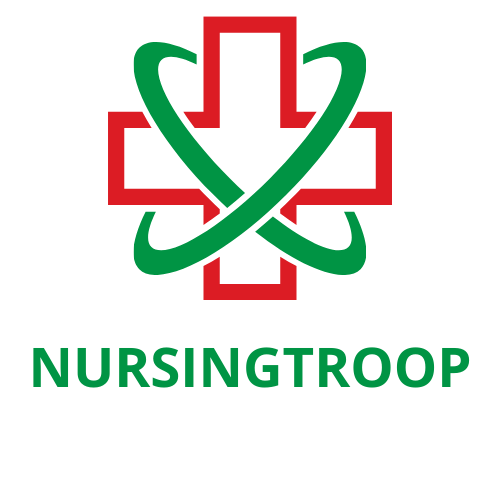The Nurse Injector role requires a lot of expertise and knowledge. The Nurse Injector needs up-to-date education on medical procedures, skin anatomy, injection techniques, product knowledge, and local regulations. Taking on this role brings immense responsibility regarding patient safety and care.
Table of Contents
What is a Nurse Injector?
A nurse injector is a healthcare professional who administers injections, such as vaccines and medications. Nurse injectors are typically registered nurses (RNs) with extensive experience in the nursing field and have completed additional specialized training to become certified or licensed to practice as injection specialists. Nurse injectors work under the direct supervision of physicians, but they may also work independently in some settings.
What does a Nurse Injector do?
Nurse injectors are experts at safely and accurately administering injections, administering medications intravenously (IV), giving birth control shots, and performing other clinical tasks requiring high skill and attention to detail.
In addition to delivering injections, nurses may draw blood, perform physical exams, take vital signs, and assist physicians in medical treatments.
Responsibilities of a Nurse Injector
1. Pre-Injection Consultation and Assessment– Nurse injectors must be able to assess patients before administering injections. This includes a medical history, vital signs, and physical assessment of the patient’s condition before proceeding with an injection.
2. Administering Botulinum Toxin Injections– Nurse injectors are responsible for administering botulinum toxin injections, which are used to treat wrinkles, excessive sweating, and other medical conditions. They must be able to accurately measure the amount of medication needed and administer it in a safe manner
3. Injection Technique– Nurse injectors must demonstrate proper injection techniques to reduce discomfort and ensure accurate patient dosing. It includes using appropriate needles, syringes, and other injection supplies.
4. Post-Injection Care– Nurse injectors must be able to provide post-injection care, which may include advice on reducing any discomfort or pain after administering the injection. They should also be aware of any rare side effects that may occur.
5. Patient Education– Nurse injectors must be able to educate patients on proper injection techniques, possible side effects, and other topics related to injections. They should also be knowledgeable about any state or federal regulations that apply to injections and the use of medications.
6. Record Keeping & Documentation– Accurate record keeping is necessary for nurse injectors to document all injections administered to each patient. It includes recording the type of medication, dosage, and any adverse reactions or side effects.
7. Injection Supplies– Nurse injectors are responsible for maintaining an adequate supply of injection supplies at all times. This may include needles, syringes, and other injection supplies. They must also ensure that expired or unusable injections are disposed of safely and adequately.
8. Sterilization & Disinfection– Proper sterilization and disinfection techniques are essential for injections. Nurse injectors should be familiar with the appropriate methods for sterilizing and disinfecting injection supplies before, during, and after each use.
9. Compliance & Regulation- Nurse injectors must also be knowledgeable about state and federal regulations regarding the administration of injections. It includes understanding any required paperwork or documentation accompanying an injection and any regulations for storing and disposing of medications, needles, and other injection supplies.
10. Emergencies & Adverse Reactions– Nurse injectors should be prepared for any emergency during an injection procedure. It includes being familiar with the signs and symptoms of a severe allergic reaction or adverse event, such as anaphylaxis. They should also have the necessary knowledge and skills to initiate appropriate emergency medical care.
What Are the Benefits of Being a Nurse Injector?
- A nurse injector is satisfied with helping others and making a difference.
- Nurse injectors can enjoy flexible schedules, allowing more personal time away from work.
- Since injections are generally quick to administer, a nurse injector can see many patients in a short amount of time.
- Nurse injectors can gain the satisfaction of helping to reduce health disparities by providing injections to underserved communities.
- The demand for nurse injectors is expected to grow, offering a stable career path.
How to Become a Nurse Injector?
Educational Qualification: To become a nurse injector, you must pass the NCLEX and be a licensed Registered Nurse (RN) in your state.
Certification and Licensure: Most states require nurse injectors to obtain certification from a recognized certifying body before they can practice as an injection specialist. Most states also require nurse injectors to obtain licensure to practice legally.
Experience & Training:
- To become certified, A nurse must complete 1000 hours of injection training supervised by a qualified physician.
- Nurses should have 2 years of experience in Plastic/Aesthetic Surgery, Ophthalmology, Dermatology, or Facial Plastic Surgery. Nurse injectors should have experience with different types of injections, such as Botox and dermal filler treatments.
Final Words
The nurse injector role is an important one that should not be taken lightly. By understanding the requirements of this specialized position and the educational qualifications that must be obtained, nurses can provide quality care for their patients while also helping to advance medical technology. With the proper knowledge and resources, a nurse injector can positively impact healthcare settings by providing safe, effective treatments to help patients look and feel their best.
Mrs. Marie Brown has been a registered nurse for over 25 years. She began her nursing career at a Level I Trauma Center in downtown Chicago, Illinois. There she worked in the Emergency Department and on the Surgical Intensive Care Unit. After several years, she moved to the Midwest and continued her nursing career in a critical care setting. For the last 10 years of her nursing career, Mrs. Brown worked as a flight nurse with an air ambulance service. During this time, she cared for patients throughout the United States.
